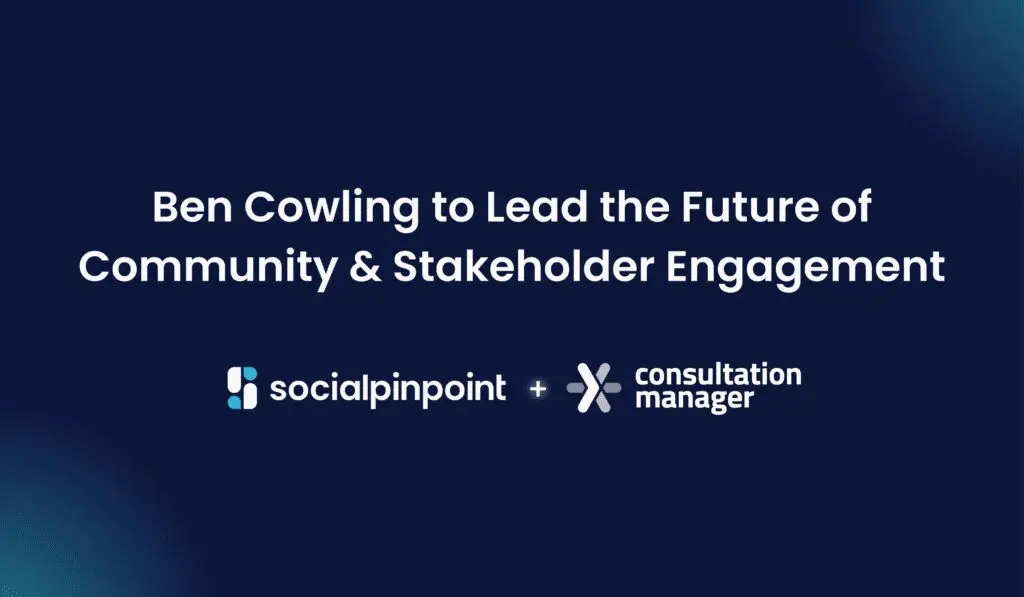When we look to engage with public participants, we know there will not only be opportunities for us to learn more about the communities but, also where there might be some larger issues at hand that might prevent you from getting meaningful feedback and interactions.
One of the most prevalent, especially in large metropolitan and smaller rural areas, is the lack of trust for the government.
Not limited to local councils, or cities, but trust in people that are viewed to work for the government in any capacity, who are often are lumped together whether intentionally or not. According to the last available data (2018) from the Organization for Economic Co-operation and Development, only 33.3 percent of United States Citizens have trust in their government.
That means that out of 10 people only 3 might believe the government is trustworthy, and when we look at younger generations, that trust level is even lower according to The Pew Research Center.
What does this information tell us?
Well, it depends on how we look at it.
The first thing we want to do as people who love engaging, whether it be working for the government or not is to look at it from our perspective. However, I challenge you to completely flip that and look at it from the stakeholder’s view. Imagine their day to day interactions with the government, past history, and how the few engagements they might have participated in actually helped them.
After that, take a step back, and completely throw all those assumptions out the window, because if we haven’t dealt with the issues they’re facing, or we aren’t from those areas then we probably have no idea what’s happened before we showed up offering assistance.
Here are 5 key things we can do to build trust in local government:
1. Understand that we are a tool
We are here to help people complete tasks or goals that in many ways are life-changing for them. It’s not about us saying “look what we’re accomplishing,” it’s about offering a service to a community to achieve a desired outcome. Our opinions often don’t matter, but what does is our expertise on how to reach the desired effect. Once we realize that, we can begin to see ourselves not as leaders, but part of a movement that’s occurring.
2. Ask questions first
Are we even doing a project that’s wanted? Did the idea come from stakeholders or someone who has never been to a city where we work let alone a neighborhood we’re speaking with? Often we have ideas that we’ve seen work in one area and we tend to adopt a one shoe fits all type of mindset. Seek out groups already operating in the areas you’re looking into and don’t offer to sell them a service, or even partner with them at this point. The goal here is to listen to those who have opinions and also to those who don’t and then ask yourself why. Have they tried engagements before? Are you the third person this year to offer a community garden when we all know there are more pertinent issues? A community garden brings the news crew, but what about the flooding they’ve faced on the same streets for years? What is going to have a bigger impact?
3. Your first ideas will not be your last
It will change, grow, shrink, and grow again, but that’s part of the process. It means you’re genuinely listening to feedback and getting to know more about that area. From there you’re not only prepared to showcase what you’ve heard to your agency or organization but also repeat back to the thought leaders on what you’ve gathered and the commonalities that may exist.
4. Ask how you can help
It’s great and all we showed up but were we even invited to the conversation? It’s a lot better when we ask to be involved instead of just saying “here we are, let’s do this!” So far you’ve just wanted to learn more about an area and its issues, but now is the time to offer your services. Hopefully, by now people have seen that you’re genuine, that you’re not just someone from the outside coming to their districts, or neighborhoods. You’re once again that “tool” that can help get a mission accomplished.
5. Stop with the self-promotion
We get it you have a whole team of people ready to blog, post on Facebook and Twitter about how awesome it is that you’ve started to help a community, but doesn’t that take away some of the sincerity of what we do, to begin with? I’m sure most of us didn’t get into this industry to receive praise and brag about how awesome we are. Stakeholders see right through that and it does not help. How about we make up our own rules, and have a marketing specialist help the local groups you’re working with craft their own posts. Show them how to get their best engagement return. It’ll create that organic bond but also leave both sides happy and feeling positive toward the amazing outcome that awaits.
If we really want to get people to open up to us and engage in a way where we are seen as a blessing, and not a distraction, we have to understand it starts with recognizing that we have to listen and learn, before breaking down barriers and opening those doors. Once we do that and develop those authentic relationships with our stakeholders, the possibilities are truly endless.












